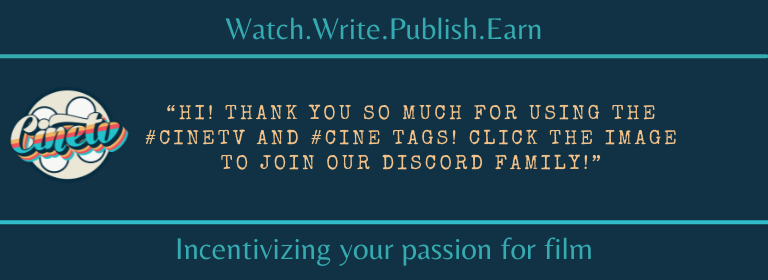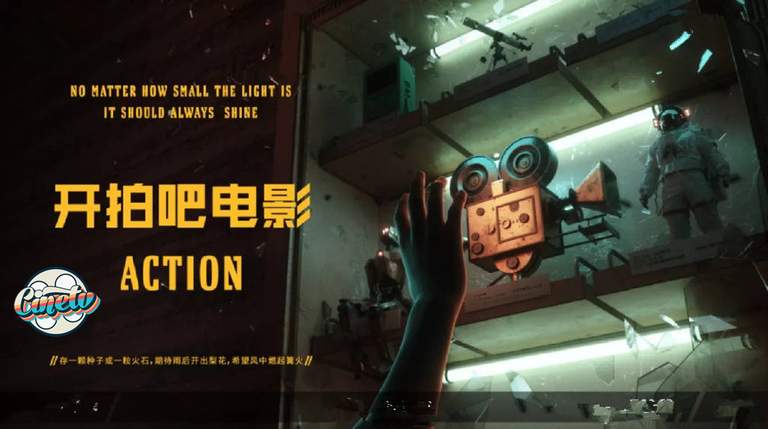
Hello everyone, I am Goliathus and this is my first blogging entry in the CineTV community. One of my personal goals is to share about good films and dramas from the East to the world. Thus, I will be mainly focusing on Eastern content.
But for this daring first post, I will not be sharing about a movie, or a TV drama -- but a variety show from China where young directors fight for a chance to get the fund for their next big screen project! Oh, the audacity on this mofo to talk about a freaking variety show in his first post! But yes, I am doing it and it's a show about the movie business, so I consider it right on topic.
In my youth, I had always questioned, "why is there no variety show about actors or acting when there are thousands of singing-based shows out there?" The most memorable answer I remembered was, "because no one cares to watch amateurs trying hard to suck at acting." Fast forward some solid years and my dream sort of came true. China had made shows about actors and acting (which, if anyone is interested, I am happy to cover in future entries), and now, they are extending the trend towards the directing part of the business.
Action! was one of my favorite Chinese variety shows last year. I wholeheartedly recommend it to anyone interested in the production process of a film -- or who just wants to check out a different kind of variety show.

Where to Watch & Things to Know
I always try to check on the international availability of the things I am recommending to the Hive audience. This one is readily available in the international version of iQiyi here and it's completely free! I cannot guarantee it is available to watch for every country, though. Like Netflix, some content is not open to the whole world.
Also, it is inversely ordered so the first episode is at the end of the list. They also don't put any effort into the episode naming. Thus, you need to click around to find out which one of the same dates is the first half all by yourself. There's also VIP-only extra footage per episode; these you cannot watch unless you subscribe to the platform.
And there could be some culture shocks, so I am giving some notes first:
- They are longer than an average film: Yes, I am not joking about this. Each episode is around 2 - 3 hours. After online streaming became mainstream in Mainland China, lengthy variety shows became a thing as they don't have to work with TV's showtime schedule in mind.
- In-your-face product placement: I know many people hate product placement so don't say I didn't warn ya! China's shows have huge budgets because blatant product placement is part of the devil's deal. I used to hate this too but I am used to it now; your mileage might vary though.
- Amateurish translation: The official English translation is far from good. It's robotic (and I feel like it is machine translated), you won't understand the slang, the on-screen info like charts aren't translated, and all of them will affect your viewing experience.

Round Structure
If you are still here, great! This is a competition show so you can expect a similar structure to competitive shows you have watched. The biggest thing I like about their whole structure in a round is that it includes every bit of movie-making from planning to screening. In essence, the entire production line of a movie is amalgamated into solid entertainment for the audience to get to learn about the movie business in a fun way.
I like any show that I can enjoy for entertainment, yet learn some knowledge from it. I think it hits the portion of the audience who wants to learn things but finds hard documentaries too dull to learn from.
Fight For Talents

You cannot have a movie without the on-screen talents. Well, I am sure some films did that, but generally speaking, you need actors to tell your stories. To spice it up, every round has different rules with how the directors acquire their actors. The show doesn't joke around with the talents they invited either. Every round is star-studded and some of the talents are award-winning veterans of the field. As far as I see, you don't see actors of that level joining a variety show in most other countries. Also, each round has a fair distribution of actors and non-actors (like singers, comedians, etc. with limited acting experience) to simulate the talent level and type in the actual market.
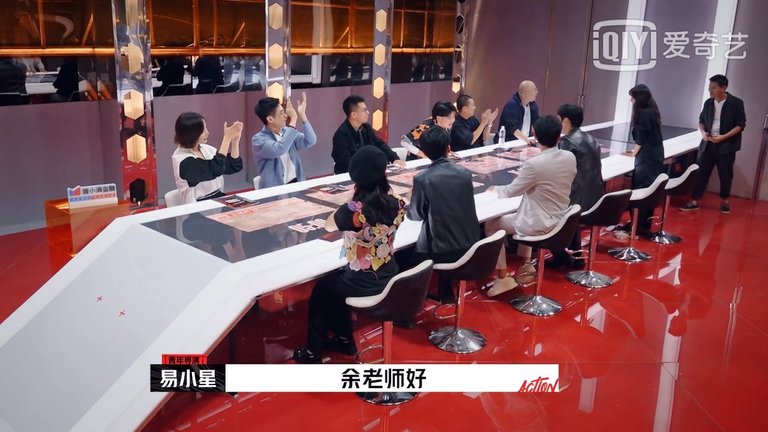
One thing I like a lot is that the talent pool is relatively shallow every round and the directors have to figure out how to pitch and hook talents to their project. I am sure the same thing is happening every day in film industries everywhere. The A-list talents are probably invited and juggling through many projects as I write this (and even when you are reading this)!
While I am sure casting instead of just outright picking talents is a more realistic approach to how films select their cast, I think how the show does it makes more sense for a competitive show. It's also worth mentioning that picking talents outright is more prevalent in China than in Hollywood. I can write thousands of words about it, but the TL;DR version is that it's a more "centralized" environment with investors and actors having a lot of power and control. So, I think this part is on-point with the industry as it is.
Secure The Bag
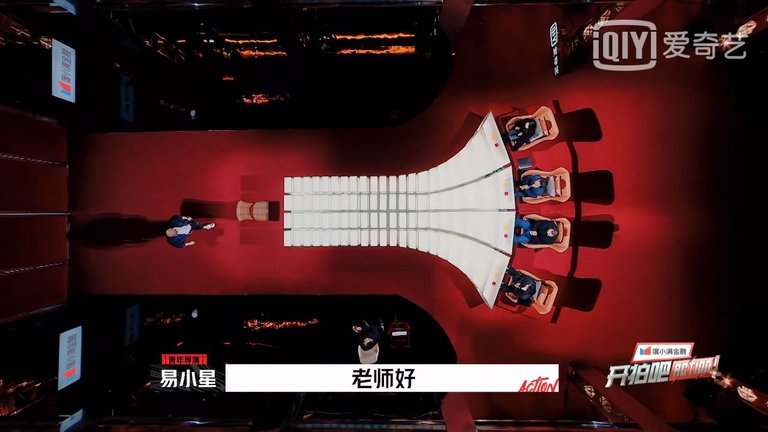
This is supposed to be the first thing to do before anything else in real life. This is a show, and thus, these things are not in the same order as they are supposed to be. As this is a show, this process is also not as cruel as real life. The competitors aren't going to get outright rejected.
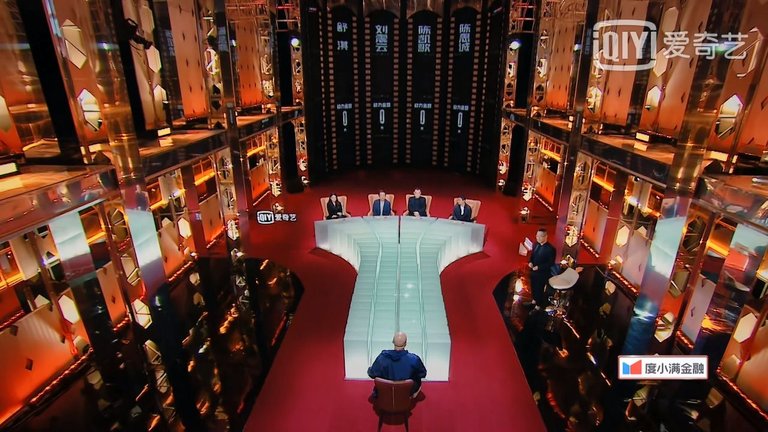
The greenlight society is made up of four veterans in the entertainment business. Their roles are to fight for profitable projects through bidding for them (as investors) and to help the directors in the movie-making process (as producers). Each society member has a limited budget so they cannot just bid on every project. It's a battle of wits and insight on both sides. The directors would try to get as much budget as possible or find the producers that can offer them some help in the filming part; the society members would try to find the most profitable projects and bid as low of a budget as possible to create a better profit margin for themselves.
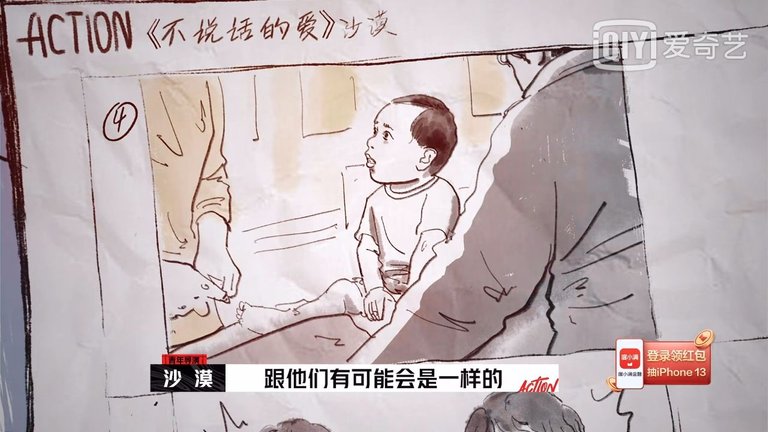
There are two rounds in the bidding process. For the first round, they are free to talk and discuss anything they want to. In the second round, the directors will bring in their cast and pitch the story together to the bidders.
Filming
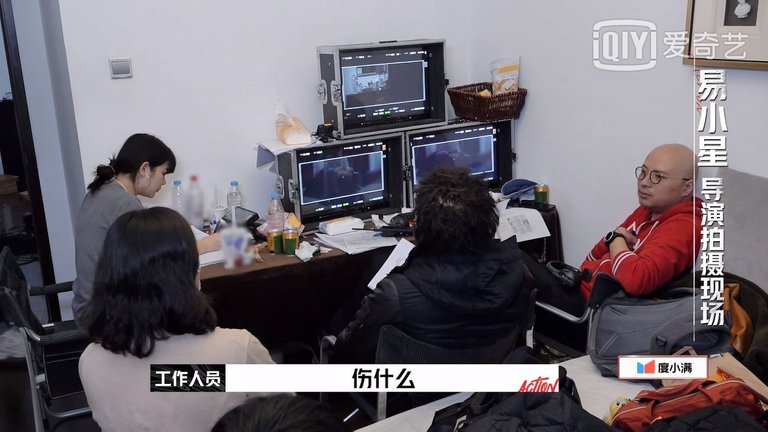
After the funding and the casts are in, it's time for filming! You will be able to watch some of the filming footage and that's about it. This is the part with the lowest amount of screen time as most works are done off the screen.
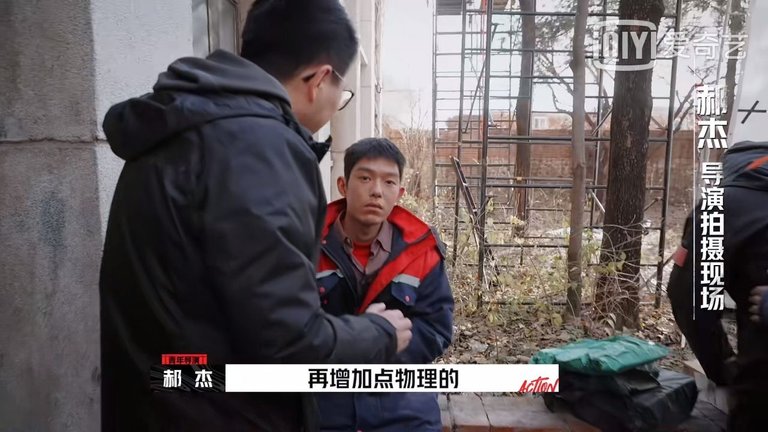
Note that every film is short and around the 15 to 20 minutes range. The directors are given only a few weeks to finish the filming part of the whole project within the budget. It's a test of the director's ability to control what's happening in the set and not just the directive skill alone.
Critic Screening
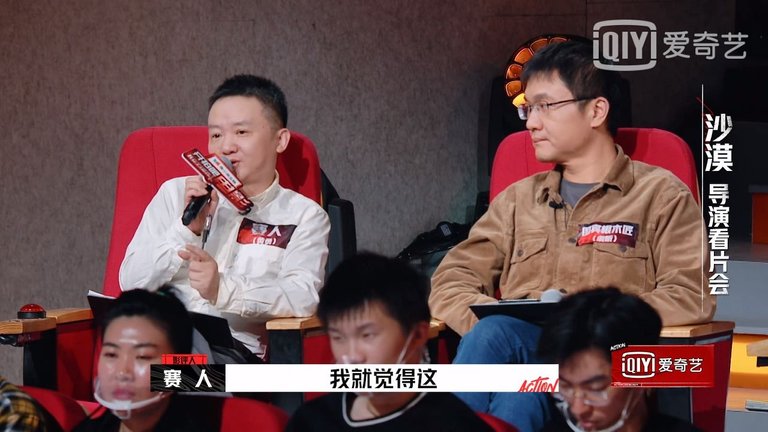
As with films in the real world, the critics and "inside people" get to see the movie first. Of course, we, the viewers, are "invited" to watch the film in this part of a round. The critics and the greenlight society are given time to criticize and share their viewpoints on the films. The critics will also rate the films and their average scores are available to the mass to see comes public screening.
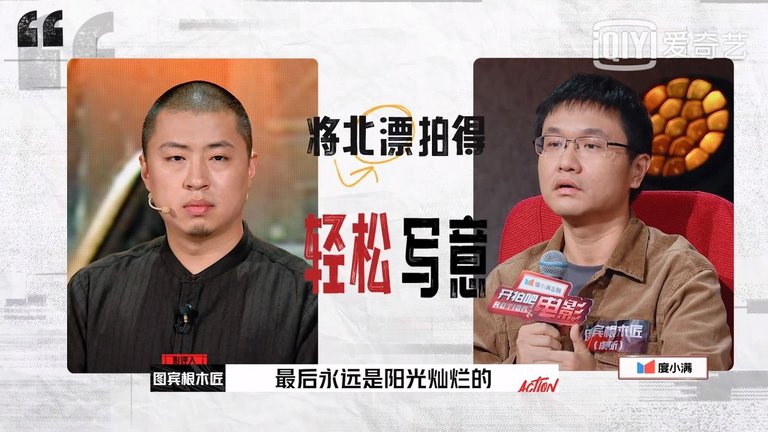
Of course, all these critics are professional. Some of them are famous critics in the China scene, and the others are reputable producers or other reputable backstage leaders of the entertainment industry.

Public Screening & Marketing
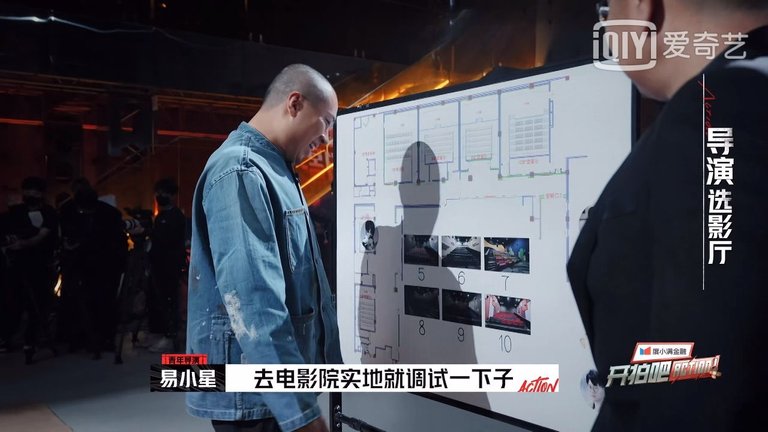
This is one of my favorite segments of a round simply because of how well done it is. I think it simulates the actual screening battle perfectly on the micro scale that they are doing. First off, they need to fight for screen position. The screens have different sizes so the big screens are favorable, so are those close to the entrance. Do note that the moviegoers can just walk right into any screen they choose, so theoretically, the screens on the back are at a disadvantage.


I also enjoy how the directors approach marketing. The poster design, the banners, etc., are all crucial parts of marketing. All of those play a role in the battle for profit. I think this part also brings up the eternal debate between commercial appeal and an art-first approach to films.
This is a true reflection of the actual market and increases the things a director has to think about when making their film. To put in some sports comparison, filmmaking is never the Olympics, where your objective is to put out the most artistically impressive films; it's more like the pro sports out there where the commercial appeal is as important of a factor in this world driven by capitalism.
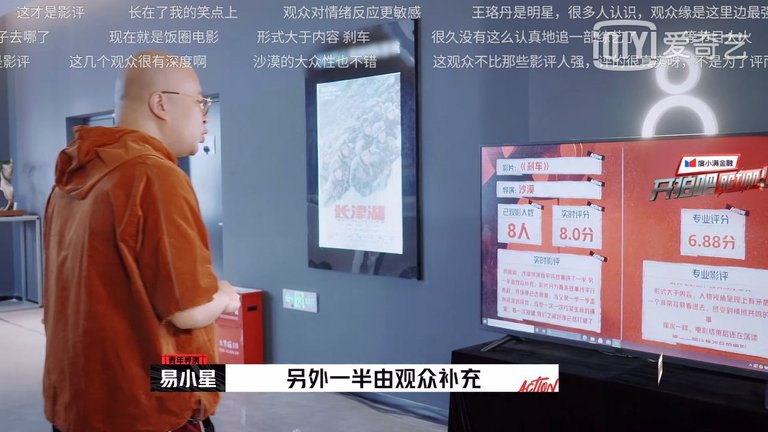
To simulate the review part of the game, the audience is separated into different batches. The critic score, the public score, and the public's short reviews of the first batch will be available to the second batch and vice versa. Thus, a film that is a hit to the early goers could get more attention to the slow goers. My only nitpick on this system is that the amount of moviegoers per batch is the same. A more accurate simulation would have more audience in the first few batches and then a lower amount later on.
Round Review
After the public screening's all done, it's time to review the movie's financial performance to determine who is the investor of the round. The scores from both critics and the public are added to find out the film winner. Usually, the one that stands out on both critical and financial grounds gets the honor.
And that's the rundown of one full round in the show. It didn't take a full round to get me hooked to this show and I enjoyed it from the first to the final episode.

Why Is It Successful?
Action! is rated as an underrated but outstanding variety show among the Chinese netizen. Its score on Douban (Chinese IMDB) is 7.1, which is about 80th to 85th percentile from my cursory research, and it is highly recommended by the people who watched it (which is not a lot compared to many other shows). For me though, I would say these:
1. Great Cast with Different Backgrounds

All four members of the greenlight society are great in their respective fields and bring different perspectives to the show. Their professionalism, insights and (somehow, a lot of) comedic moments really add to the show.
- Shu Qi represents the actors. Some might know her as Lai in The Transporter. She is a very versatile award-winning actress who has been cast in all kinds of films, from action to drama.
- Liu Zhenyun represents the writers. An award-winning author and then screenwriter, his works have been adapted many times in Chinese films. He was awarded the highest cultural honor in some countries for his comedic yet realist-based works. I don't know if his verbal wittiness can survive the translation, but this dude's the bomb.
- Chen Kaige represents the directors. He is the one you might know besides Shu Qi, as he had directed a couple of internationally-known works like Farewell My Concubine, Mei Lanfang, Wu Ji/The Promise, and the current highest-grossing film in Chinese cinema, The Battle at Lake Changjin. He is very insightful and can talk very deeply about a subject, which is very good for the show.
- Chen Sicheng represents the producers and "the hybrids". As an actor, Chen never had achievement at the level of Shu Qi, but what he did very well was when he turned backstage. He won awards in directing and screenwriting and is currently a producer of many projects -- talk about the backstage versatility!


Of course, you will not have a show with just a bunch of great judges but bad participants. The varied backgrounds of the young directors are what make the show even better. Each of them brings a different style to the table and their films are very distinctive and unique from each other -- so are their on-screen personalities, which is vital to a lengthy variety show like this.
- Hao Jie is an award-winning indie director specialized in rural films, who refuses to bow down to capitalism, commercialism, or even the slightest request to change his film. It's 100% him or no deal.
- "Crackpot" Peng Youlun is an award-winning commercial and multimedia director who has won it all in those respective fields. She wants to crack a bigger pot than those.
- Wang Luodan is one of the "80s' Four Flowers", a capable actress with no directive experience, seeking for knowledge to become a "hybrid".
- Joshua, Yi Xiaoxin is a commercial-capable director who broke out from making funny internet video. He's the "grassroot type" director with a comedic flair but questionable taste on the art side. So, Adam Sandler, sorta.
- Sha Mo is an "academic type" director and a Beijing Film Academy graduate. He's the most well-rounded competitor in resume, having success in both the critical and commercial aspects of the film business before the show. You could say he's the "big boss" by episode 1. Side note: His name is literally the same as "desert" in Chinese. They sometimes pun it.
- Hu Guohan is the academic rival of Sha Mo, as he is a The Central Academy of Drama graduate, the other elite film school in China. He's the young and hungry competitor looking to take down the big gun and prove he's as good as them despite being too young to have a proper resume.
2. Nice Balance Between The Characterization and Competition
As I have said above, another thing I really like about this show is that it covers as much of the filmmaking business as possible in a fun way. There are other variety shows about acting or filmmaking, but not all of them cover the whole package. Some just focus solely only on the filmmaking or the director themselves. This one has a "macro" approach and looks to present the struggle that directors faced at every part of the whole process. The rules variants every round also keep the show relatively fresh and different for every round to make it less repetitive.
Aside from the competition, the show also showcases the directors' personal side very well. I think this is one of the most significant style differences you will find with China's reality show. Their long screen time and the audience's preference to see the emotional side of things are both factored into the presentation. The directors aren't just competitors you watch for their films, but persons with different emotions and struggles that make you care about them more than just the professional side.
3. As Fair As It Gets
Some China shows are notorious for unfair cut and screen time distribution. In some shows, the presentation will be adjusted to make some contenders better than others, or they will have more screen time than others by a lot, or some contenders will have a lot of negative things being exposed on screens, and so on. The popular shows with a lot of views and traffics are especially vulnerable to these sorts of "capitalism and industry political control." A talent company just has to pay to have their talents shine or to have the opponent's talents be presented poorly.
These are all not there in Action! Every director gets their solid share of screen time and their thoughts and ideas are all presented fairly with no cutting in the middle.

Teasers
If you read it this far and are still not 100% buying into trying, here are some of the short films made in the show. I try to be as spoiler-free as possible. My purpose is to show the diversity of the movies in the show, hoping that you find something you like enough to at least try out an episode.
Poster Detail 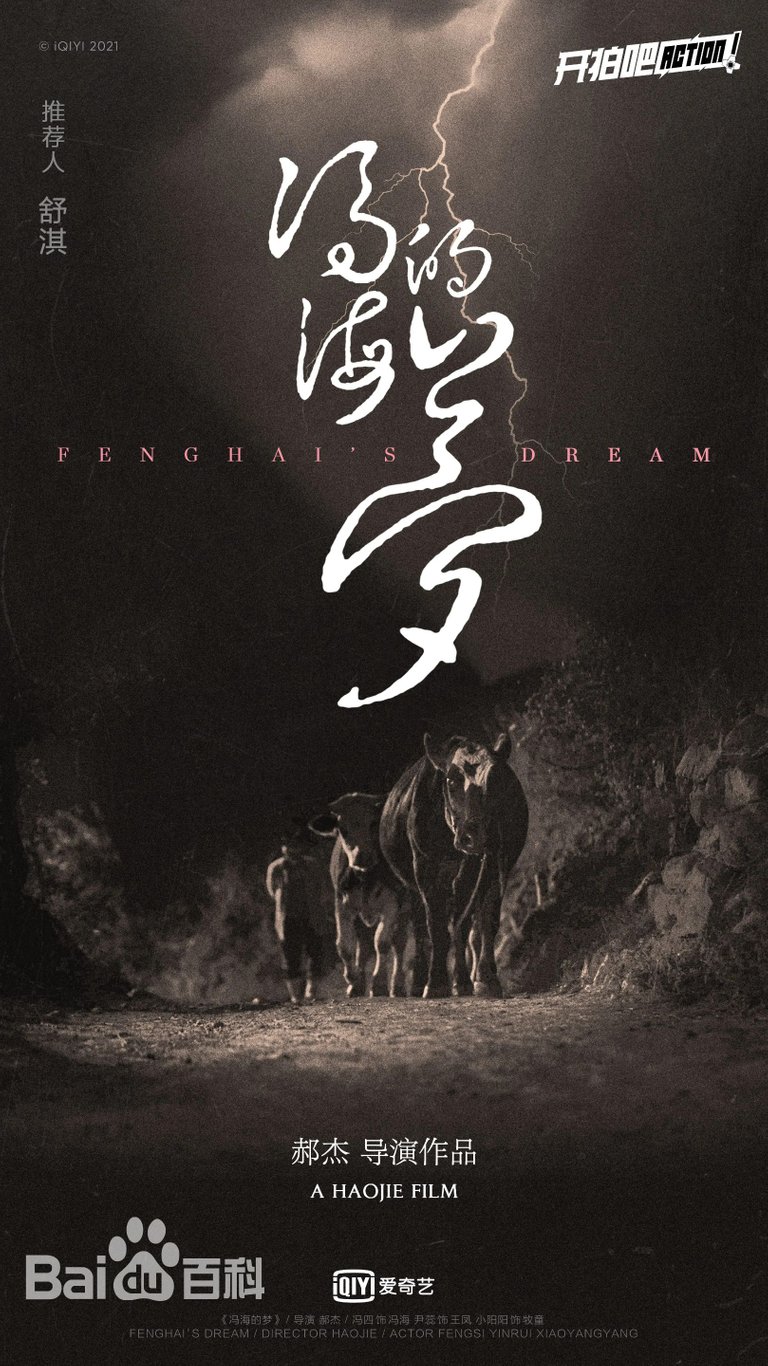
Feng Hai really likes this girl from the same village. One day, he has the chance to do what he wants to her as she asks him for financial relief. He accepts the offer, yet the night doesn't go as how he ever dreams up to be. In different ways, both of them aren't happy with what happened. That night sets off something in their relationship...
Goli's Verdict: Absolutely brilliant and artistic, a film for the enthusiasts.
A talent manager is demanded to do the mission impossible: push a caterpillar to become the next mega idol of China.
Goli's Verdict: If you want to learn about the idol culture of China in 15 minutes, this is the film to watch.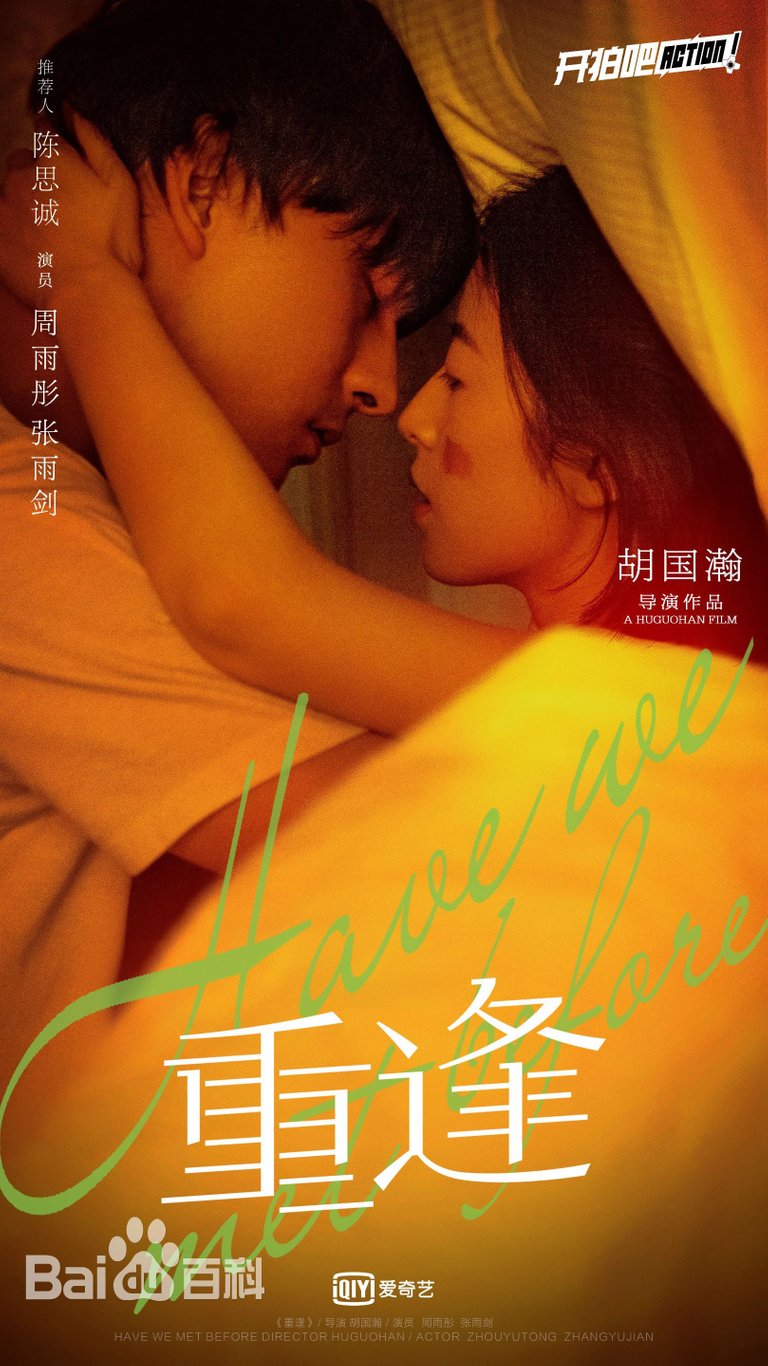
A hotel receptionist miraculously finds herself falling in love with a regular who books a room with different partners every time...
Goli's Verdict: Excellent cinematography, even if other parts of the film aren't perfect
A guy is searching for his missing girlfriend with the help of the internet. However, things don't seem so simple...
Goli's Verdict: Gives me a Korean movie vibe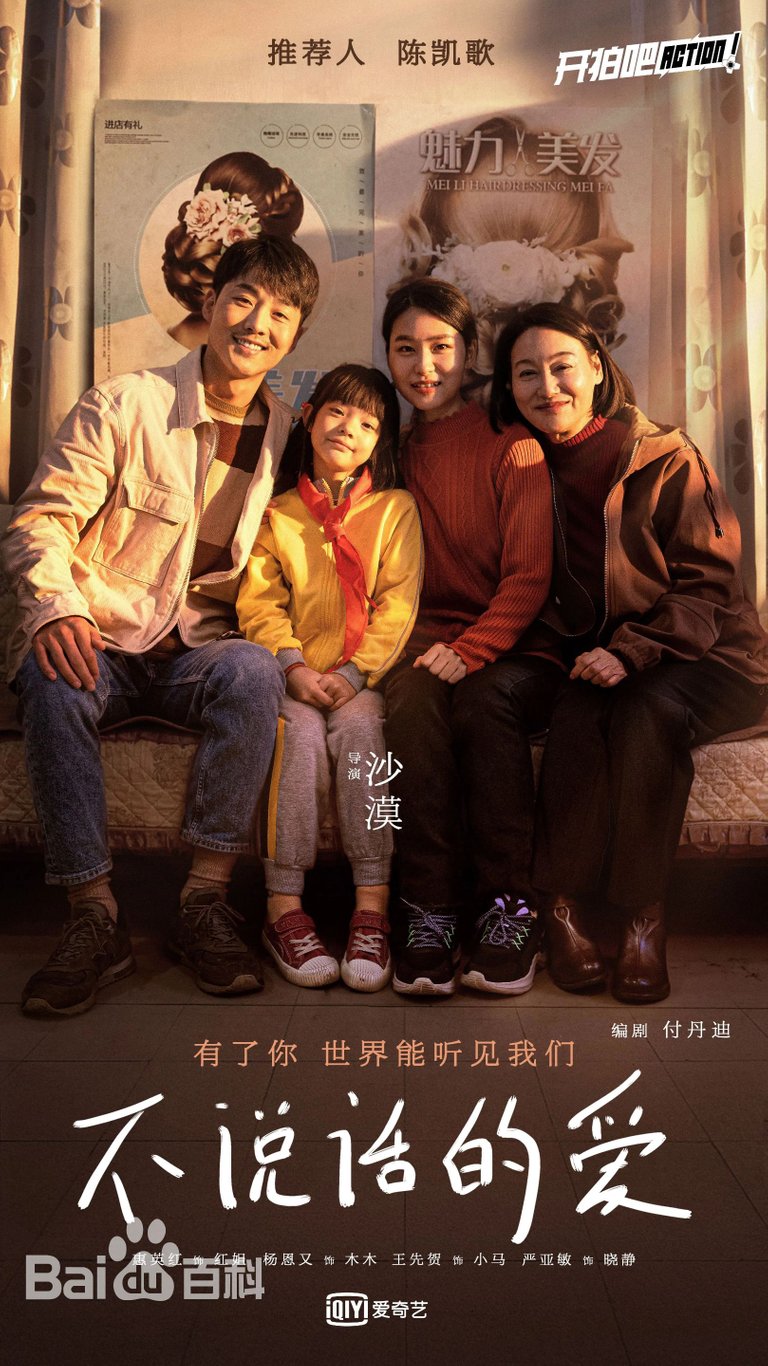
A deaf couple wish for a healthy child unlike them, but it seems like they aren't that lucky after all...
Goli's Verdict: The storyline is flawed, but doesn't take it away from its core message
If you have any questions or would like more contexts of the slang used in the show for better understanding, you can always find me in the CineTV discord.
I personally rate this show an 8 - 10 out of 10. If I am on a picky day, I feel like it's an 8. Some days I feel like it's a 10. One thing I am certain of is that it won't drop below 8 for me, and I highly recommend it to fans who are into filmmaking -- hence, this post! That's all from me today, and I will see you all in the next post. Thanks for reading!
Disclaimer:
All screenshots of the Action! are taken from the China version of iQiYi, with the app's own build-in function.
All short films posters are taken from the Baidu page of Action!
Other images are credited on-the-spot.
I do not own any of the images used in this post. All rights belong to their respective owners. I do not own any of this content.
